African Americans have faced countless hardships throughout history, enduring stereotypes that labeled them as inferior and even criminal.
However, this article shines a spotlight on 15 remarkable individuals who defied these stereotypes and left an indelible mark on the world.
From the first African-American President of the United States to inventors, activists, and artists, these awe-inspiring figures have enriched our lives and society in countless ways.
Join us as we delve into their extraordinary stories and the impact they’ve had on history.
Barack Obama
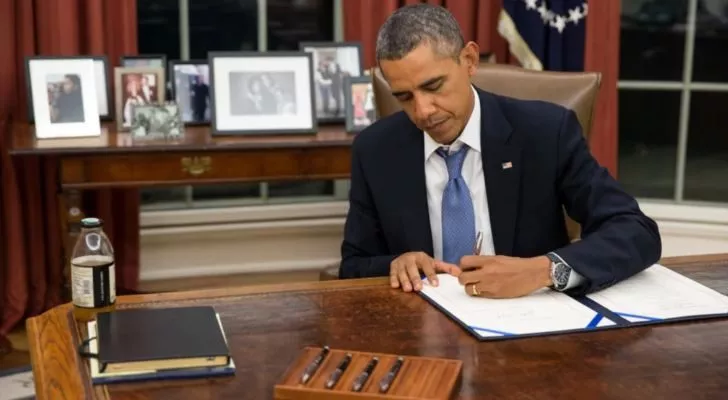
One of the first things that makes Obama stand out among the other US Presidents is that he was the first African-American US President, but don’t let that define him.
He was also one of the youngest presidents of the country, becoming President at the age of 47.
Besides bringing peace between the US and other countries, Obama also fulfilled his responsibilities by introducing a wide range of laws that made a positive impact on US society.
These laws resulted in improved salaries, healthcare, and LGBT rights, to name a few.
Michael Jordan
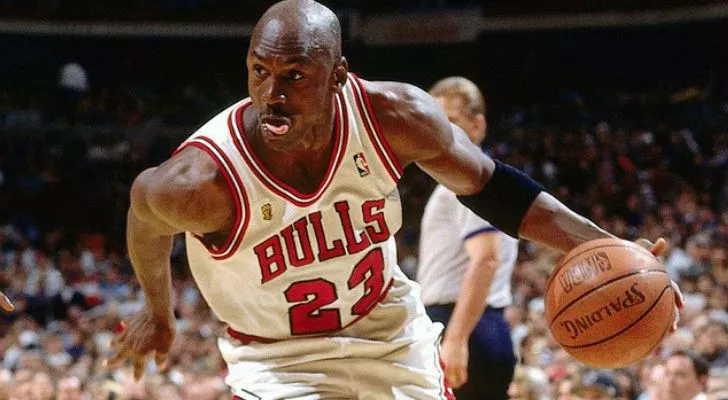
Throughout his career, Jordan highlighted the beauty of basketball with his signature fadeaway jump shot, jaw-dropping athleticism, and electrifying game-winning shots.
This resulted in basketball becoming more popular worldwide. But it’s not just the sport that benefited from Jordan.
The US economy also experienced the impact of his excellence because, in 1998, it’s estimated that $10 billion of the US economy came from businesses that were associated with Jordan.
This explains why he was one of the most marketable athletes during his time in the NBA.
Now, due to Jordan being highly marketable, he has become one of the highest-paid athletes. As a result, he was able to help the US again through donations to organizations that support education, healthcare, and anti-racist organizations.
Lewis Latimer
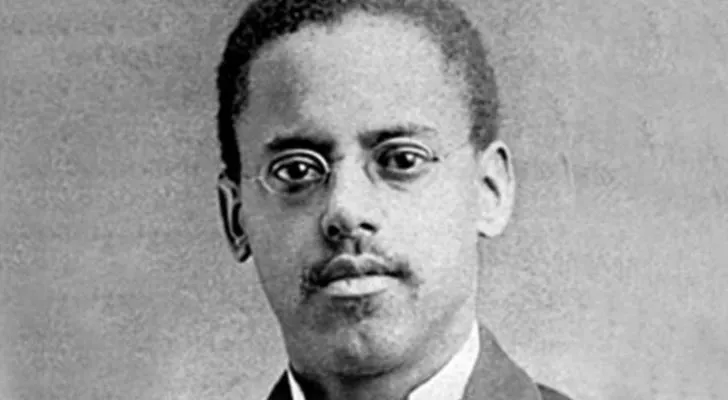
While Thomas Edison invented the light bulb, Latimer was the one who actually made them usable at all – Edison’s bulbs burned out so fast they were useless!
This wasn’t the only contribution Latimer has made in his career, though. He also helped Alexander Graham Bell by creating the blueprint for the telephone in 1876.
Latimer was a man of many talents, a polymath, to be exact, who enjoyed poetry as much as he liked to tinker.
But sadly, despite being an essential part of history, Latimer and his contributions are rarely mentioned in history class.
Oprah Winfrey
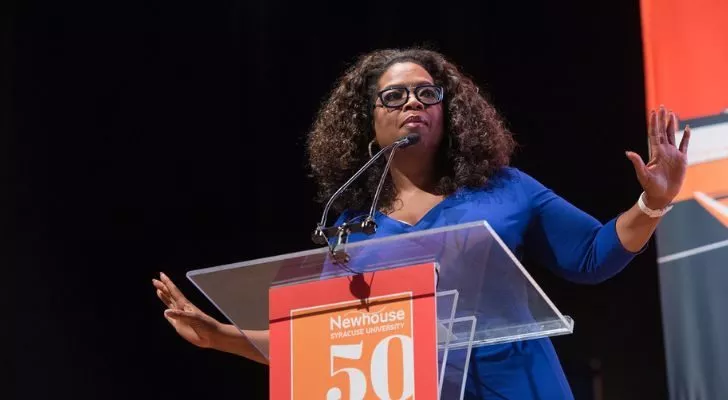
Oprah’s show was adored by the masses for a remarkable 25 years, thanks to her outstanding skills in public speaking and interviewing.
This long-lasting success made her one of the wealthiest and most influential African Americans in the United States.
Oprah is a strong and fearless woman who never hesitates to express her opinions, particularly on important societal issues like child abuse and racism against Black Americans.
It’s no surprise that in 2013, she was awarded the Presidential Medal of Freedom, the highest civilian honor in the United States.
Muhammad Ali
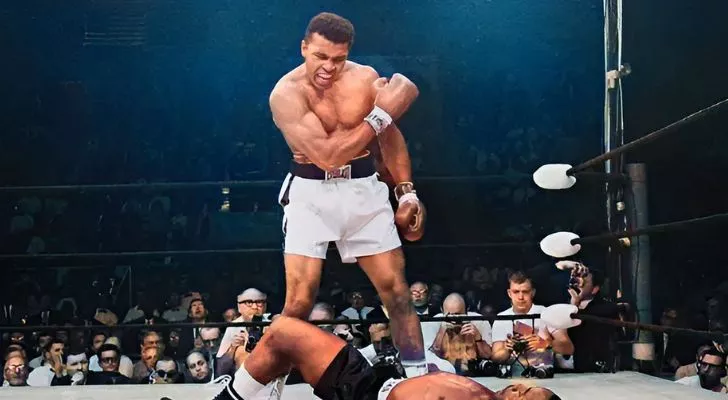
Unlike most heavyweight boxers, Ali’s boxing style relied more on speed, hitting opponents with numerous punches that can only be seen clearly through slow-motion videos.
But Ali didn’t just make an impact in the boxing industry. He also played a crucial role in fighting against racial inequality and rejecting white supremacy by replacing his name, Cassius Clay (which he considered a slave name), with Muhammad Ali.
Martin Luther King Jr.
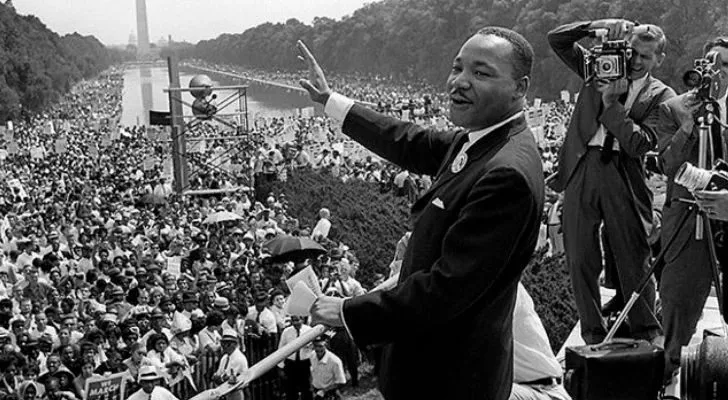
Martin Luther King Jr., a Baptist minister and prominent social activist born in Georgia, is best known for his leadership in the American civil rights movement.
He organized numerous peaceful protests, with his “I Have a Dream” speech during the 1963 March on Washington becoming an iconic moment in history.
While he played a significant role in advancing civil rights, the Civil Rights Act of 1964 was a collective effort.
King’s dedication to nonviolence and personal sacrifices remain an enduring inspiration for those working toward justice, equality, and civil rights today.
Rosa Parks
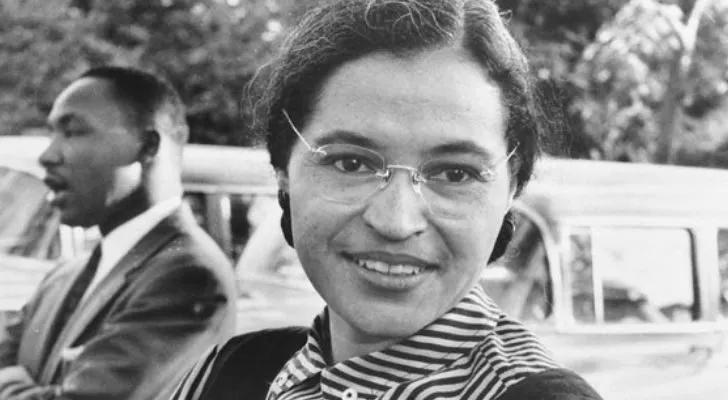
On December 1, 1955, Rosa Parks disobeyed racial segregation laws and refused to give up her seat to a white man.
This act of wilful disobedience led to the watershed Montgomery Bus Boycott, which saw over 17,000 Black Americans boycott the bus company until the laws were changed.
That was just the beginning for Rosa Parks, though, as she went on to spend the rest of her life fighting for marginalized groups.
Ida B. Wells
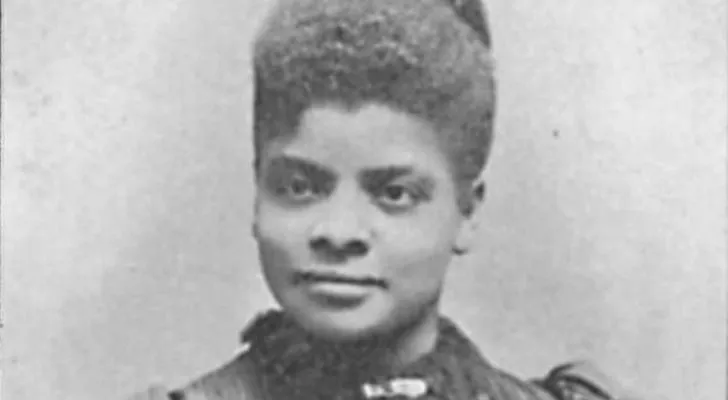
Ida was born in Mississippi and grew up in one of the most challenging times in the US to be Black, especially a woman. Lynching was rife, Jim Crow laws were being brought in, and the courts were all-white.
Following the lynching of a close friend, Ida spent the rest of her life investigating, reporting on, and fighting against the rise of lynching in the US.
She was posthumously awarded the Pulitzer Prize for her outstanding and courageous work as a journalist.
Thurgood Marshall

Imagine being rejected by a college of your choice just because you’re Black. Well, that’s what happened to Marshall during the 1920s. It was all because of the Jim Crow laws, which legalized racial segregation in the US.
Marshall ended up graduating instead from Howard University School of Law, which primarily consisted of African-American students.
He spent the rest of his life fighting in court for African-American rights and ultimately ended up becoming the first Black Supreme Court Justice.
Toni Morrison
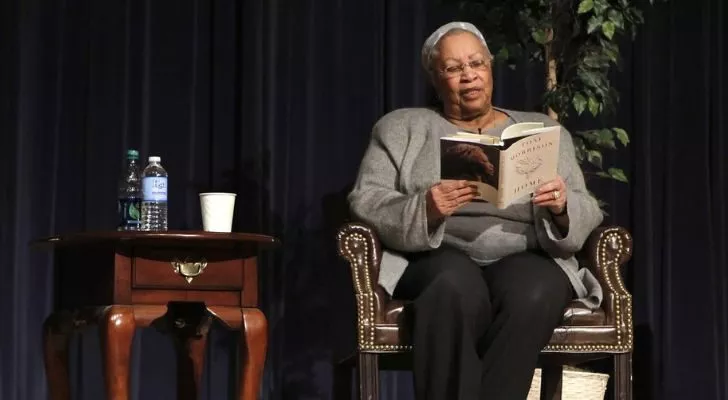
Morrison was a 20th-century writer who focused on writing novels about her Black heritage, allowing fellow African Americans to read books that deeply resonated with them.
Through her novels, Morrison shared what life was like as an African American struggling to live through the 20th century. She was ultimately awarded a Nobel Prize for Literature in 1993.
Malcolm X
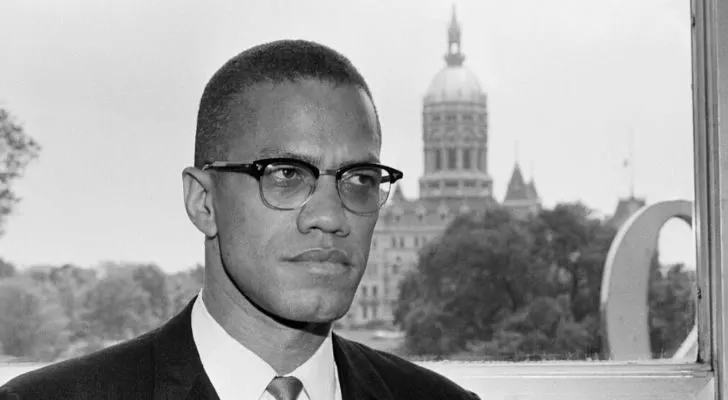
Born Malcolm Little, he changed his surname to “X” because he believed white people replaced his ancestor’s African surname.
He wasn’t like most civil rights leaders, though, who wanted to break down racial barriers. Instead, Malcolm X promoted the idea of racial separation rather than segregation and insisted African Americans return to Africa.
Oh, and going back to his refusal to have a white name, he was actually responsible for influencing Muhammad Ali to change his name.
Willi Smith
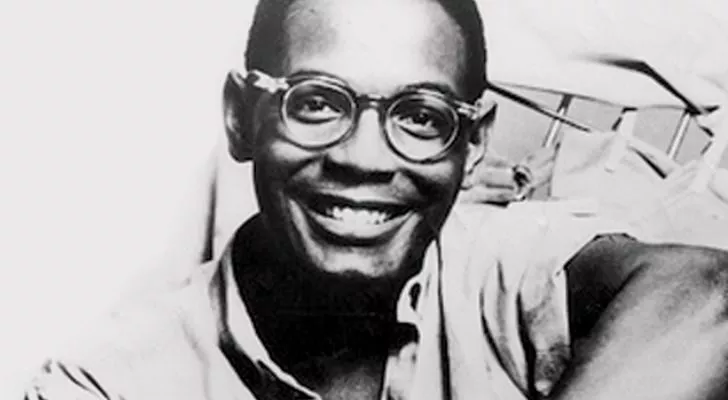
As you’re probably already aware, clothes in the old days were rigid, boring, and entirely unsuited to everyday wear. So what changed?
Well, Willi Smith came along. He refused to give in to this fashion style, which made him invent street couture (famously known as streetwear) in the 1980s.
He wanted this type of clothing to be the opposite of what others perceived regarding fashionable clothes. And that vision turned into reality, as people worldwide have incorporated streetwear culture into their lives.
Jimi Hendrix
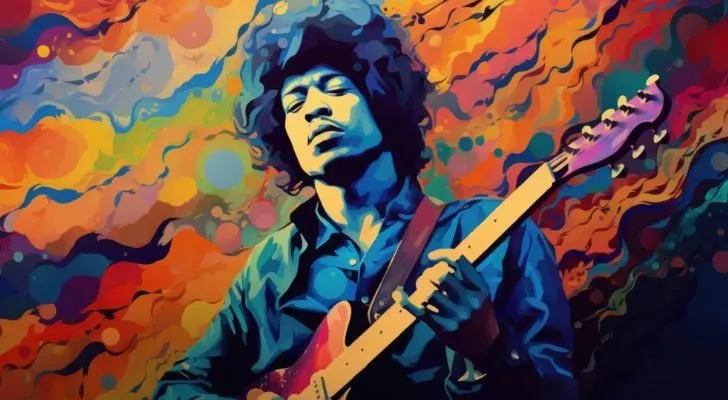
Besides being a left-handed guitarist, what also made Hendrix unique was his techniques while playing the guitar.
It changed the music industry, as he pioneered new sounds that made playing electric guitars more versatile.
Some examples of his musical influence include the wah-wah and whammy sound.
The former literally produced a “wah” sound and was achieved using a guitar pedal.
On the other hand, the latter made a vibrato sound when bending the whammy bar attached to the electric guitar’s body.
Garrett Morgan
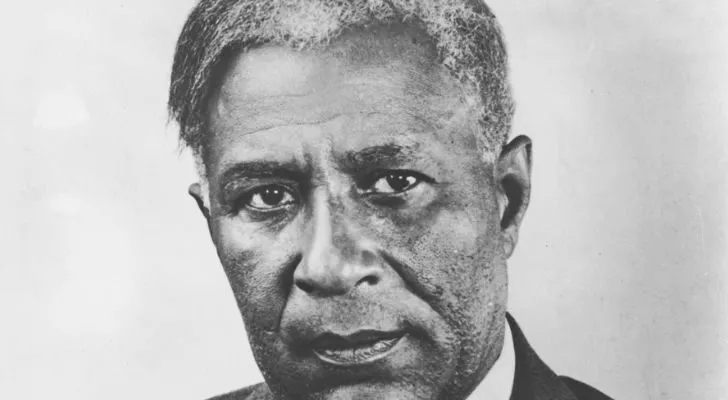
One of the reasons you can safely return home after crossing the street or driving your car is thanks to Morgan’s invention – the three-way traffic signal.
Don’t be confused, though. Morgan didn’t invent the traffic light. Instead, he made roads less accident-prone by adding another signal that stopped cars in all directions. This directly led to the concept of the yellow traffic light we use today.
Morgan ultimately sold the patent to the General Electric Corporation for a whopping $40,000 – the equivalent of more than $700,000 today!
Mae Jemison

What Jemison contributed to Black history was entirely out of this world, as she became the first African American to ever go to space in 1992.
Even though she left NASA a year later, she continued to pursue great things, like starting a technology research company, writing books, and even forming a nonprofit educational organization!
She was an inspiration for African Americans, space enthusiasts, and (of course) women.
And with all that, it’s no surprise that she was awarded the Ebony Black Achievement Award and inducted into both the National Women’s Hall of Fame and the International Space Hall of Fame.
These 15 awe-inspiring African Americans have demonstrated that the power of determination, resilience, and innovation can transcend any obstacle.
They’ve paved the way for future generations, proving that stereotypes can never define one’s potential.
From the political realm to the worlds of sports, science, and literature, their contributions continue to resonate in our lives today.
As we celebrate their achievements, we are reminded of the limitless potential that exists within all of us to shape history in our unique ways.


















